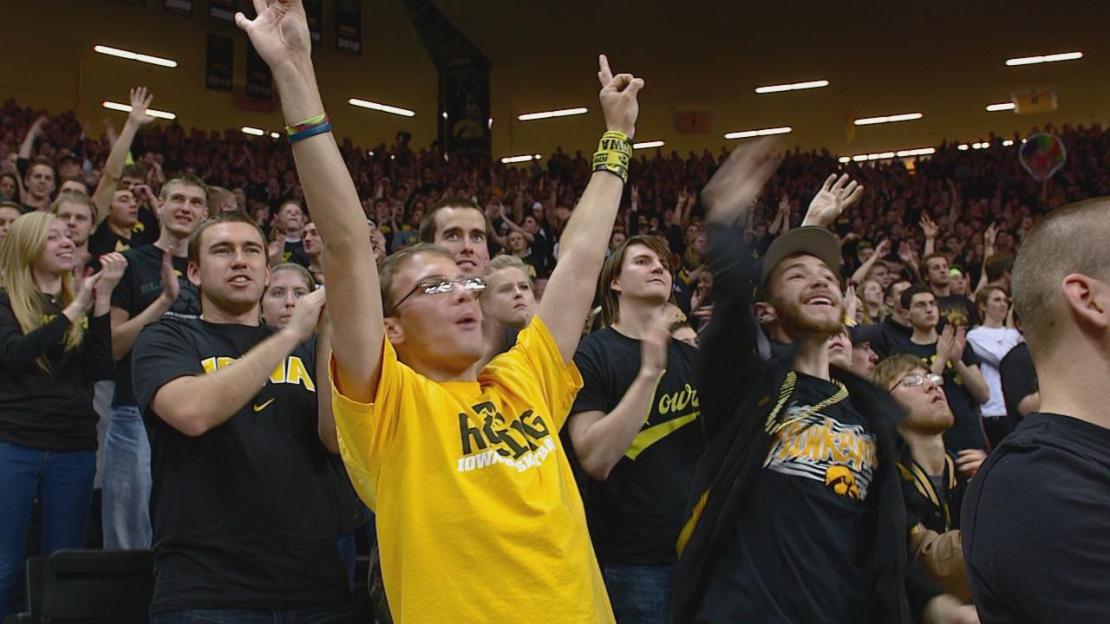Kent McDill, January 25, 2014
Following this afternoon?s wrestling match against Minnesota, learn how the University of Iowa is developing more effective, cost-efficient flight training for the US military, and meet an inspiring student in the UI REACH program.
When the University of Iowa developed a program that would allow high school students with multiple intellectual, cognitive and learning disabilities to attend college, it certainly got the name correct.
Realizing Educational and Career Hopes - known as REACH - offers these students, who may never have had college on their radar, the opportunity to attend a university.
Students accepted into the two-year UI REACH program study toward a transition certificate while they further their goal of becoming independent and engaged members of the community. In many ways, these students are just like traditional college students, and they lead very similar college lives.
?Our students live in one of the regular residence halls,? said Pamela Ries, director of UI REACH. ?We have special floors where we have additional residential assistants (RAs) that we train, but there are also traditional students living on the same floors. Next year we are going to try to get our students into some of the traditional floors.?
For the most part, students in the UI REACH program do not take the same courses as traditional students, although some REACH students have taken traditional classes in special education and multiculturalism. Their learning is aimed at their development as a member of society while in many cases aiming the student toward a career they find meaningful. It is a life-skills program in the expansive environment of a college campus.
?Our teachers are people with regular teaching degrees, special education teaching degrees, and people that have backgrounds in social work and housing,? Ries said. ?We have 13 people that are full-time working in our program, and we have a lot of other people that are adjunct to teach one or two courses for us.?
According to Ries, the students aren?t the only ones who need guidance through the college transition.
?Most of these parents have had to fight for their kids their entire lives,?? Ries said. ?Some of them are sending their kids halfway across the nation. We have students from New York, Texas, California, Tennessee. We continue to have contact with the parents, but the students are their own guardians. If parents hear about an issue, they tell us. If a student comes to us with a need, we tell the parents.?
The UI REACH program has shown great success in placing graduates into jobs after graduation.
?In the last two years, 82 percent of our kids had jobs after being out of our program for two years,? she said. ?According to the U.S. Department of Labor, only 17.8 percent of people with disabilities are employed, and 82 percent of our graduates are employed.?
For more about the UI REACH program, visit: http://www.education.uiowa.edu/services/reach/home







 Basketball is back! Find available live games on our B1G+ app via BigTenPlus.com.
Basketball is back! Find available live games on our B1G+ app via BigTenPlus.com. 